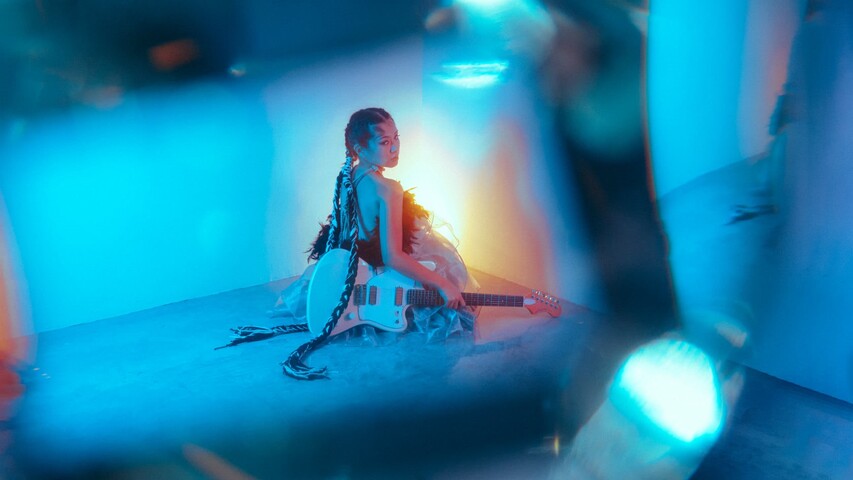Vision, intensity and emotive songwriting – these are the long-held expectations of the singer-songwriter tradition. Its captive audience seeks out these hallmarks viscerally and instinctively. In Singapore, Ethel Yap is one such artist whose music has been making the rounds in such circles. Her 2017 self-titled debut EP is the kind of music that’s a medicine for cynicism. Across its four songs, it deftly balances ethereality with earthiness with a hushed grace that isn’t without its own power.
Below, Hear65 checks in with Ethel to find out more about the intricacy with which she approaches her craft.
How did you get into music?
I’ve always been around the arts. My family is pretty musical; we all sing and play instruments. When I was younger, my parents used to being me to watch plays. In Junior College and university, I studied theatre as a proper discipline. There always was that constant exposure. Along the way, I discovered music.
Tell us more about how you made music your main calling.
Well, it’s always been a part of my life, mainly singing. I picked up some instruments along the way but the guitar became my primary one. That happened whilst I was doing my master's in London, which is also when I found the courage to write my own songs. It was just a way to express and process my thoughts of being in a new environment and being totally independent for the first time. Songwriting helped me understand what I was going through and became my own creative output.
Catharsis is the main reason many singer-songwriters keep at the craft. Is it the same for you, too?
Yes, absolutely. That’s why my work is very personal. It’s me trying to understand the things that are happening in my innermost emotional world. I became very interested in folk music when I was in my early 20s. Fleet Foxes, Ray LaMontagne, Glen Hansard and Jewel exposed me to the purity and rawness that existed in the folk mode. When I started making my own music, it came out that way as well.
In the folk world, all you need is a voice and a guitar – that’s what carries a recording as well as a live performance. Within that framework, the best musicians are able to tell the most beautiful stories. That simplicity is very powerful.
In that sense, do you see the audience as a confidante?
Yes, to a certain degree. When I share my songs with people, they occupy the role of confidantes by default. On the other hand, one of the challenges of songwriting is to express something profound without being too obvious; you have a cultivate a certain air of mystery. There’s that dynamic between revealing and concealing. So as much as the audience is my confidante, I’m also mystifying what I say to it.
What was your vision behind your EP?
The reason it's self-titled is because I wanted my first musical work that I put out into the world to be an origin story. I didn’t feel the need to give it any other name than my own. This crop of songs is meant to express who I am as a person with my listeners. Each tells a story of the time of my life when I wrote about them.
Lastly, what made you want to shoot the video for 'Beautiful' in one long take?
I felt that it would reflect the essence of the song, which is that there’s a process that’s bigger than us. All the different elements happening in one take are part of a narrative that the song conveys. It’s the story of how time passes within a family.
I wanted to tell a story that felt real. There has to be conflict; life has to come full circle. There’s a hint of a reconciliation, but it’s not obvious.



